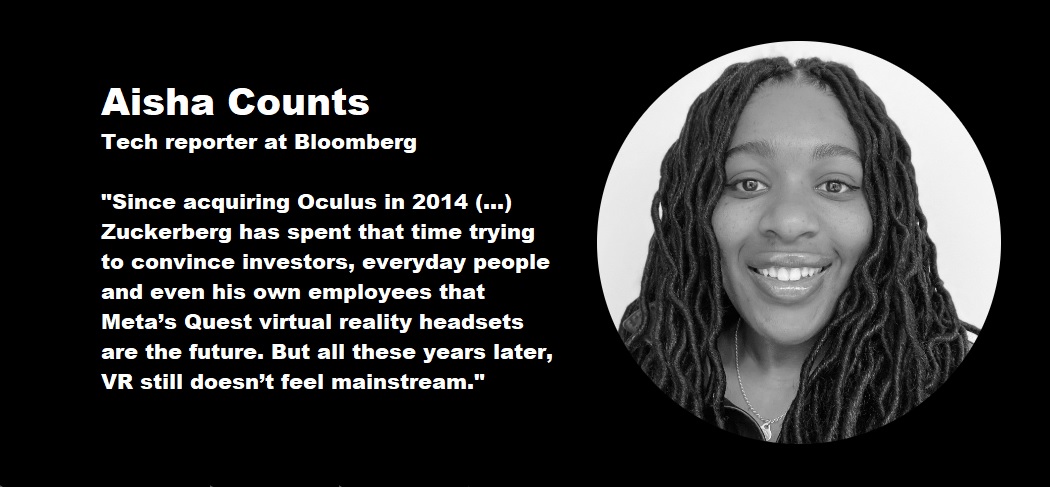
Ten years in, Meta is still trying to convince us that virtual reality is the future. The company has already lost $50 billion on its VR headsets and expects to keep spending more than its making on the product. Still wondering why. – an article written by Aisha Counts from Bloomberg.
A decade ago, the social networking company then known as Facebook bought Oculus, a startup that made virtual reality headsets. At the time, Chief Executive Officer Mark Zuckerberg was just beginning to buy into the idea that people would live, work and play in a virtual world called the metaverse. By 2021, he had named his company after the idea.
Since acquiring Oculus in 2014, Meta Platforms Inc. has poured billions of dollars into making virtual reality headsets that are designed to transport people into the metaverse. Zuckerberg has spent that time trying to convince investors, everyday people and even his own employees that Meta’s Quest virtual reality headsets are the future. But all these years later, VR still doesn’t feel mainstream.
Ahead of the company’s annual developer conference this week, I set out on a quest (pun intended) to find out whether people were actually using Meta’s virtual reality headsets, and whether it’s worth buying one.
I contacted organizations that have partnered with Meta or made splashy announcements about using the headsets. The consulting firm Accenture Plc, for example, started using the Quest for training employees several years ago. But it doesn’t sound like employees use VR regularly in their day jobs and it’s not clear whether Accenture actually paid for the headsets or were gifted them by Meta. Stanford University couldn’t give me any examples of how professors or students were using the Quest in classrooms. And Walmart Inc. didn’t respond when I asked how employees were working with the headsets. I previously reported that Meta’s own employees weren’t regularly using VR.
A real estate company and a VR company that work with Meta also didn’t have much to share. The real estate company said a small number of luxury realtors use VR, but it wasn’t common, and the average agent definitely isn’t using the technology. The other Meta partner said it couldn’t find a compelling reason for the average person to use virtual reality.
Basically, I had a hard time finding people who pop on the Quest headsets consistently. Sure, some people use them for exercise (I had some friends box with it, but I declined to participate because of the sweat), a few may put it on for work (some Bloomberg colleagues gave up), and there are people who use them for gaming. But that’s still a small number overall.
Meta’s balance sheet seems to back that up. The company has already lost $50 billion on its VR headsets and expects to keep spending more than its making on the product.
Even Apple Inc.’s entrance early this year into the field, with its mixed reality Vision Pro headset, hasn’t created an obvious market.
I’ll be at Meta’s annual developer conference where Zuckerberg is expected to roll out yet another version of his VR headsets. Maybe this time there will be a new app or feature that makes me want to buy one, or at least more examples of people using the Quest in real life.
Though the futuristic gadget has some cool features, there’s nothing compelling enough for me to spend $500 or wear a bulky headset over my face when I already have a phone and laptop that can do plenty. It’s been 10 years, but Zuckerberg still has some convincing to do.
Banking 4.0 – „how was the experience for you”
„To be honest I think that Sinaia, your conference, is much better then Davos.”
Many more interesting quotes in the video below: